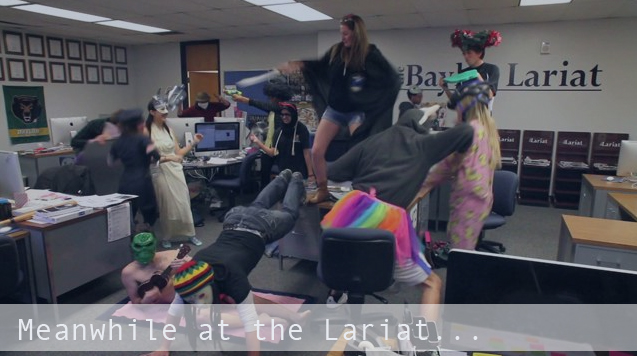By Rebecca Flannery
Staff Writer
Before I start this piece, I’m going to explain a bit about how staff writers and reporters are able to divide and conquer: We have what is called a beat.
A beat is what we adhere to when looking for stories to write. Put simply, it’s a topic of coverage. A Waco beat, philanthropy beat and faculty beat are a few examples of responsibilities. One of my beats, one of the most integral to a newspaper, is called Cops and Courts.
Cops and Courts is important because it’s one of the ways journalists are able to check on the local government, see where there may be holes and hold city officials accountable simply by the facts we gather.
Now, one of the most difficult parts about being assigned the Cops and Courts beat is continually having to go over details of a legally iffy issue in the city or of a shooting, drug bust or “dead body.” It’s something I have to remind myself is more than just a story. These details I review with chiefs of police or officers, both on campus and in Waco, are about people first – not about the blood and gore.
One of the terms you might hear around a newsroom or newsstand is the phrase, “if it bleeds, it leads.” That sucks. I’m going to be honest; I’ve felt at times that if we shrink these stories down to their “bloody” headlines, it seems as if the drama is all we’re after. Is there any room in journalism to consider the lives of those affected by cop stories?
Front pages are continually littered with headlines like “Dead Body Pulled from River” or “21 Arrested in Drug Bust.” My conflict is reducing these bodies and numerals of people to just that: objects. They’re never described as “Father,” “Son,” “Sister” or “Friend.” However, that’s what they are.
I realize in journalism there’s no room for superfluous details. It’s strictly fact. Fact here, fact there: plainly black and white. And when there may be a little color added, it could be considered libelous or defamatory. Humanity just isn’t factual enough to include.
That’s where I hope readers can recognize and solve the problem: you, on the other side of this article. I’d like to ask you to consider, next time you read a Cops and Courts story, to consider the people we’re writing about and not their blood. Consider how the events are affecting their lives and their families. Consider how, even if the story is about a convicted felon, how their lives aren’t the same as it was when they were younger. Question how they may have come to this place in their lives or how much they may be hurting. Think about the people they have hurt, and think about the people who have been wronged by others. Consider the pain, in some cases, the joy, and the grief.
Cop stories aren’t as cut and dry as they appear on paper. They convey the important details that the public have a right to know. But the details about the lives of the people involved are just as important, so think on it.
I’m encouraged by the fact that humans don’t operate like an article. We are made to be in community with one another, to encourage one another and to empathize with one another. It’s easy to skim over an article and not consider who you have just read about, but try applying your human emotion to the piece. You owe that much to your community.



